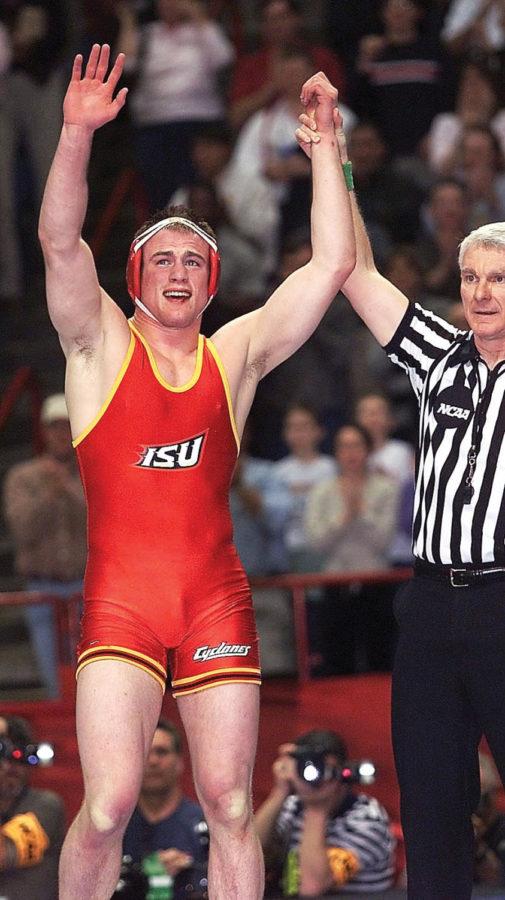The schism, shift of power in wrestling
April 20, 2011
Collegiate wrestling saw something unusual this year, when former ISU coach Cael Sanderson led Penn State to its first national title since 1953.
The Nittany Lions’ capturing of the title was the first time that a team from outside the states of Iowa, Minnesota and Oklahoma had won a national championship since Arizona State did so in 1988.
“This is just an opportunity to showcase great wrestling in the East,” said Sanderson, who became the only undefeated wrestler in NCAA history from 1999 to 2002 as a Cyclone. “I’ve been blown away by the support for wrestling on this side of the country.”
Sanderson’s departure from Iowa State to Penn State, along with the development of regional training sites with an emphasis in Olympic freestyle wrestling on the East Coast, has accounted for this recent trend.
“As a result of that, wrestling is developing more,” said former ISU coach Bobby Douglas. “People are getting more educated about it, and I think that there’s potential for growth.”
Douglas, who coached Arizona State to the 1988 title before coaching Iowa State from 1992 to 2006, went on to say that the influence of mixed martial arts on the West Coast has inhibited the growth of wrestling in that area.
“It hurts us not having guys going into the Olympics and going right into MMA,” said ISU coach Kevin Jackson. “It hurts the country.”
Jackson, a 1992 Olympic freestyle gold medalist, formerly competed in MMA to stay in shape after missing the cut for the 1996 U.S. Olympic freestyle team.
“With the MMA, you can take advantage of the things that you’ve been doing for 20 years; the skills that you’ve learned and have become an expert in can pay off for you big-time as far as winning more titles on the MMA level, as well as making a lot more money than you would wrestling,” Jackson said.
Arizona State’s Bubba Jenkins committed to MMA after winning the 157-pound title at this year’s national tournament to end his collegiate wrestling career.
“I’m excited about it,” Jenkins said. “With me being a two-time finalist, national champ and junior world champ, I believe that should give me some good fights to begin with.”
Even though wrestlers with world or Olympic accolades would be more attractive to the MMA world, there’s no guarantee for someone with accomplishments at the NCAA level to succeed in the world or Olympic scenes.
“I’d much rather see our guys go for the world championships, Olympic games, and then after that they choose to go to MMA and do that,” Jackson said.
Another 2011 national champion, Iowa State’s Jon Reader, decided to continue wrestling under the guidance of Jackson for the Cyclone Wrestling Club with Olympic aspirations.
“He has the mindset that he wants to accomplish something bigger and better and that’s a world Olympic title,” Jackson said of Reader. “So he’s going to stay in our room as a member of the Cyclone Wrestling Club, continue to train with [Trent and Travis] Paulson and continue to improve.”
The divide between Olympic wrestling and MMA has been drawn by the differences in culture on both the East and West Coasts, creating a schism in the sport at the collegiate level.







